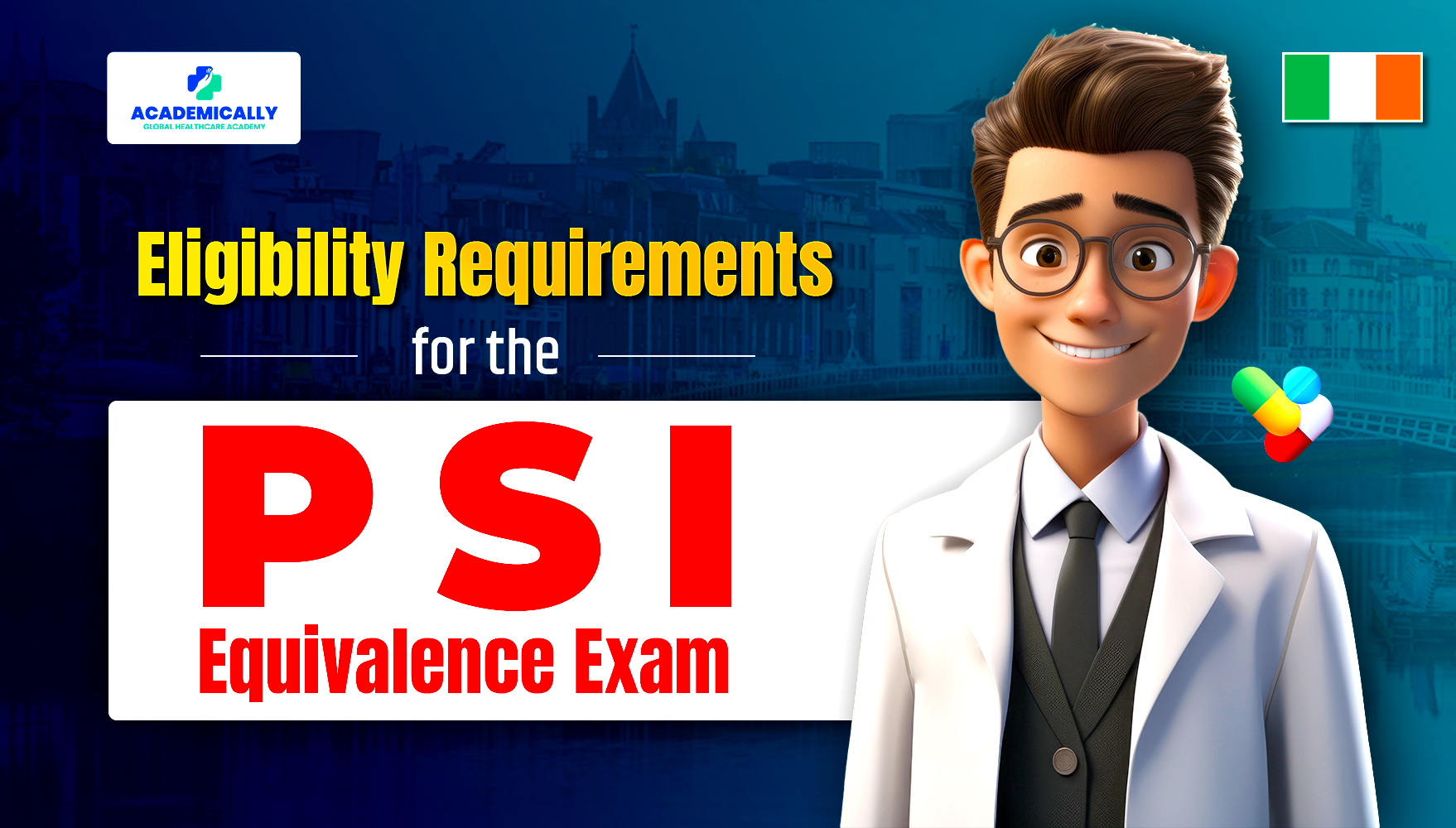What is the Pharmaceutical Society of Ireland?
The Pharmaceutical Society of Ireland (PSI) is the regulatory body that oversees pharmacists and pharmacies in Ireland. Their mission is to protect public health by setting educational and professional standards for pharmacists. They handle pharmacist and pharmacy registration, conduct inspections, and investigate complaints from the public. If there's an issue with a pharmacist or pharmacy, they take appropriate action.
PSI operates independently and is an agency within the Department of Health. Their governance is managed by a 21-member Council appointed by the Minister for Health.
What is the Third Country Qualification Recognition (TCQR)?
The Third Country Qualification Recognition (TCQR) process, managed by the Pharmaceutical Society of Ireland (PSI), is designed to assess and recognise the qualifications of pharmacists who have been trained outside of the European Union (EU) and European Economic Area (EEA). This process allows individuals with pharmacy qualifications from non-EU/EEA countries to be evaluated for eligibility to practice pharmacy in Ireland.
The TCQR process involves several steps. Firstly, applicants must provide detailed documentation demonstrating their education, training, and work experience in pharmacy. The PSI then evaluates these materials to determine whether the qualifications meet the required standards for pharmacy practice in Ireland.
Once all requirements are met, the applicant must pass a registration examination to ensure they have the knowledge and skills necessary to practice safely and effectively.
Countries Included in the European Union
- Austria
- Belgium
- Bulgaria
- Croatia
- Cyprus
- Czech Republic
- Denmark
- Estonia
- Finland
- France
- Germany
- Greece
- Hungary
- Ireland
- Italy
- Latvia
- Lithuania
- Luxembourg
- Malta
- Netherlands
- Poland
- Portugal
- Romania
- Slovakia
- Slovenia
- Spain
- Sweden
What are the Eligibility Requirements for the PSI Equivalence Exam?
While getting started with the PSI registration through the TCQR pathway, there are certain steps to be completed, including the Application for verification, the PSI Equivalence exam, etc.
To apply for registration with the Pharmaceutical Society of Ireland (PSI) as a pharmacist trained in a non-EU/EEA country, you must meet specific educational and training requirements. A 5-year bachelor's degree is the minimum standard, with the course structure needing to fulfil one of the following conditions.
Four Years of Academic Training and One year of Practical Training
You can apply for registration if you have completed four years of full-time theoretical and practical training at a university or an equivalent higher institution. Additionally, you must have completed a 12-month traineeship under the direct supervision of a tutor pharmacist, either in a community pharmacy open to the public or in a hospital pharmacy department.
Four and a Half Years of Academic Training and Six Months of Practical Training
To be eligible under this condition, you must have at least 4.5 years of full-time theoretical and practical training at a university or equivalent institution, along with a six-month traineeship. This traineeship must be completed under the direct supervision of a tutor pharmacist in either a community pharmacy open to the public or a hospital pharmacy department.
The practical training component—whether 12 months or six months—must be part of the qualification that allows you to practice as a qualified pharmacist in your home country before you are eligible to practice independently and without supervision. It must also include a significant portion of patient interaction in a community or hospital pharmacy setting. Other types of pharmacy practice will not be accepted for the Third Country Qualification Recognition (TCQR) process. In both cases, the pharmacist should hold full and unrestricted registration in their country of training.
Documents Required
- Degree
- Transcript
- Syllabus Copy
- Valid Passport
- Government ID Proof
- Good Standing Certificate
- Registration Certificate
- Passport Sized Photograph
Conclusion
The PSI Equivalence Exam serves as a crucial pathway for non-EU-trained pharmacists to demonstrate their competency and qualifications for practice in Ireland. By understanding and meeting the eligibility requirements outlined by the PSI, candidates can take proactive steps towards achieving licensure and contributing to the pharmacy profession in Ireland.
If you are a pharmacist looking to meet the standards set by the Pharmaceutical Society of Ireland (PSI), our comprehensive course is designed to help you succeed in the PSI Equivalence Exam. With expert guidance, in-depth study materials, and interactive practice sessions, we cover everything you need to know to pass the exam and advance your pharmacy career in Ireland.
Why choose our course?
- Expert instructors with extensive experience in pharmacy education
- Detailed curriculum covering all key topics in the PSI exam
- Practice exams and feedback to track your progress
- Flexible learning options to fit your schedule
Fill up this form for a free one on one counselling session.


